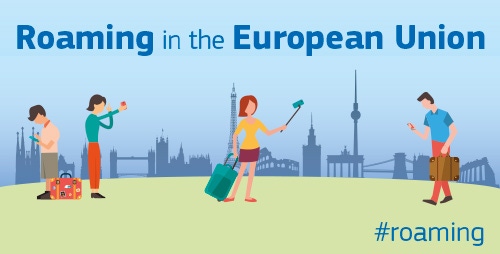The European Commission has made healthy strides towards its goal of a Digital Single Market in adopting a proposal to set maximum wholesale roaming charges.
June 15, 2016

The European Commission has made healthy strides towards its goal of a Digital Single Market in adopting a proposal to set maximum wholesale roaming charges.
While the discussion surrounding high roaming charges has been ongoing since 2006, progress has been slow in an effort to ensure sustainable pricing throughout Europe. The Commission has had to ensure operators are able to offer retail roaming services without any charges in addition to the domestic price. To meet these requirements the charges have been set at a maximum of €0.04/min, €0.01/SMS and €0.085/MB throughout the EU.
“In a year from now, we’ll say goodbye to roaming charges,” said Vice-President for the Digital Single Market Andrus Ansip. “Our ambition is to abolish unjustified geo-blocking on the same occasion. We also want the cross-border portability of content to be a reality in 2017 so that Europeans can travel with their films, music, sports broadcasts, e-books across the EU. This will clearly be a triple win for European consumers.”
Following the adoption of the Roaming Regulation, which entered into force in November last year, the EU committed to the stringent regulation of retail roaming charges in the Union from 15 June 2017. While this is still the long-term goal, there is a temporary pricing structure in place, which has reduced the cost for the consumer. As of April 30 this year, operators were limited to charging a maximum of €0.05 per minute of call made, €0.02 per SMS sent, and €0.05 per MB of data.
One of the complications for the Commission has been to ensure rates are fair to all 28 countries in the Union, while also ensuring the consumer is protected. Countries such as Spain and France needed wholesale rates to be high enough to ensure it compensated for revenues accumulated through tourist traffic. Countries where outward travel is more common feared removing retail roaming rates without lowering wholesale prices first would see a rise in domestic prices to compensate for the loss. While these disputes were of little concern to the consumer who would ultimately want lower prices, the European Commission has always had one eye on the cost implications to ensure the move didn’t negatively impact investments in infrastructure.
“We want to make sure that the end of roaming charges works properly for consumers and market players,” said Commissioner for the Digital Economy and Society Günther Oettinger. “This is why we come today with a proposal on wholesale roaming markets. We count now on the European Parliament and the Council to keep the pace and adopt it swiftly.”
Although roaming charges will be more stringently regulated as of June next year, there are still a couple of exceptions for operators. Operators will be able to adopt a ‘fair use’ policy to stop customers taking advantage of the system by potentially using cheaper roaming rates permanently. Secondly, should an operator be able to demonstrate to the Commission it cannot recoup the costs following the removal of the charges, in turn raising domestic prices to compensate, it would not have to comply with the new regulations.
About the Author(s)
You May Also Like








.png?width=300&auto=webp&quality=80&disable=upscale)


_1.jpg?width=300&auto=webp&quality=80&disable=upscale)


.png?width=800&auto=webp&quality=80&disable=upscale)